In the darkest of times, the human psyche instinctively seeks images associated with peace, strength, and renewal. One of the most powerful such archetypes is the sea – a symbol of infinity, depth, and eternal movement. The art therapy session “The Sea – a Source of Strength and Peace”, held at the Separate Structural Subdivision of the Poltava Professional College of Oil and Gas of the National University “Yuri Kondratyuk Poltava Polytechnic”, was dedicated to this healing metaphor. It brought together those affected by the war on a shared journey to the inner sea of harmony.
On August 20, 2025, the participants of the art therapy session, who are internally displaced persons, did not just paint seascapes; they learned to hear its breath within themselves, to touch its wisdom, and to take a piece of its tranquillity with them. The session aimed to promote emotional relief, activate resourceful images associated with the sea, and create a safe space for self-expression – so necessary in times when words cannot always describe the full spectrum of experiences.
This meeting was designed to support internally displaced persons affected by the war. It was a continuation of a series of events within the large-scale international Erasmus+ KA220-ADU project “TRUST” – Trauma of refugees in Europe: An approach through art therapy as a solidarity program for Ukraine war victims (Grant No. 2024-BE01-KA220-ADU-000257527).
The project title is decoded as follows:
TRUST
T – Trauma
R – Refugees
U – Ukraine
S – Solidarity
T – Therapy
The project is co-funded by the EU and led by the Centre Neuro Psychiatrique St-Martin from Belgium, in partnership with the National University “Yuri Kondratyuk Poltava Polytechnic” (Ukraine), Greek Carers Network EPIONI (Greece), Fondazione Don Luigi Di Liegro (Italy), Lekama Foundation (Luxembourg), EuroPlural Project (Portugal).
The moderators of this art therapy session were Lesia Klevaka, Ph.D. in Pedagogy, Acting Head of the Department of Psychology and Pedagogy, Associate Professor, and Viktoriia Shevchuk, Ph.D. in Psychology, Associate Professor of the Department of Psychology and Pedagogy, under whose guidance the participants immersed themselves in a deep meditative process. The meeting began with a warm welcome and the “Sea Breath” exercise, which instantly set a calm tone. Participants closed their eyes, imagining their inhales as gentle waves coming to the shore, and their exhales as waves receding, taking tension and fatigue with them. This simple breathing technique is a powerful tool for returning to the “here and now”, which is critically important for people living in a state of chronic anxiety about the future.
After setting the mood, an introductory conversation took place, where each person reflected on the personal meaning of the sea. What memories does it evoke? What emotions – peace, joy, or perhaps fear of the unknown? If the sea were a friend, what would it advise? These questions became a key to the unconscious, allowing each participant to find their own point of contact with this mighty element.
The central part of the meeting was the drawing exercise “My Sea Today”. On a sheet of paper, participants created an image of their inner state. For some, it was a calm, gentle sea under a clear sun, symbolising hope and inner silence. For others, it was turbulent waves and a stormy sky, which allowed them to release accumulated pain and anxiety safely. In art therapy, such a process is an act of containment – transferring complicated feelings onto paper, which makes them less destructive and more manageable. Sharing impressions in a circle helped each person feel that they were not alone in their experiences.
A memorable impression was made by the sensory exercise “Touching the Sea”. Each participant chose a pebble, a seashell, or a handful of sand. The task was not just to hold the object, but to feel its texture, weight, temperature, and to imagine what message it carries. For a psyche traumatised by war, reconnecting with the body and senses is extremely important. These “sea messages” – “you are as strong as this stone”, “your beauty is inside, like in this shell” – became potent symbols of support.
The most emotional and creative moment was the creation of “The Sea in a Bottle”. Using sand, seashells, glitter, and dyes, the participants created their own symbolic amulet – a small, personal sea. This process had a deep therapeutic meaning: making one's own, controllable world of peace that can be taken with you. This bottle became not just a souvenir, but a “resource anchor” – a reminder that even when there is a storm around, there is always a place inside where peace reigns.
At the end, a closing circle took place, where each person shared their feelings, completing the phrases: “Today the sea gave me...” and “I am taking with me the feeling of...”. The answers were filled with new awareness: some found peace, some found hope, and some found permission to be different, just like the sea itself. The joint ritual “Sea Breath” became a symbolic final touch, helping to preserve this state of harmony. Such events prove that art becomes not only a language of healing but also a source of inner strength, accessible to everyone.
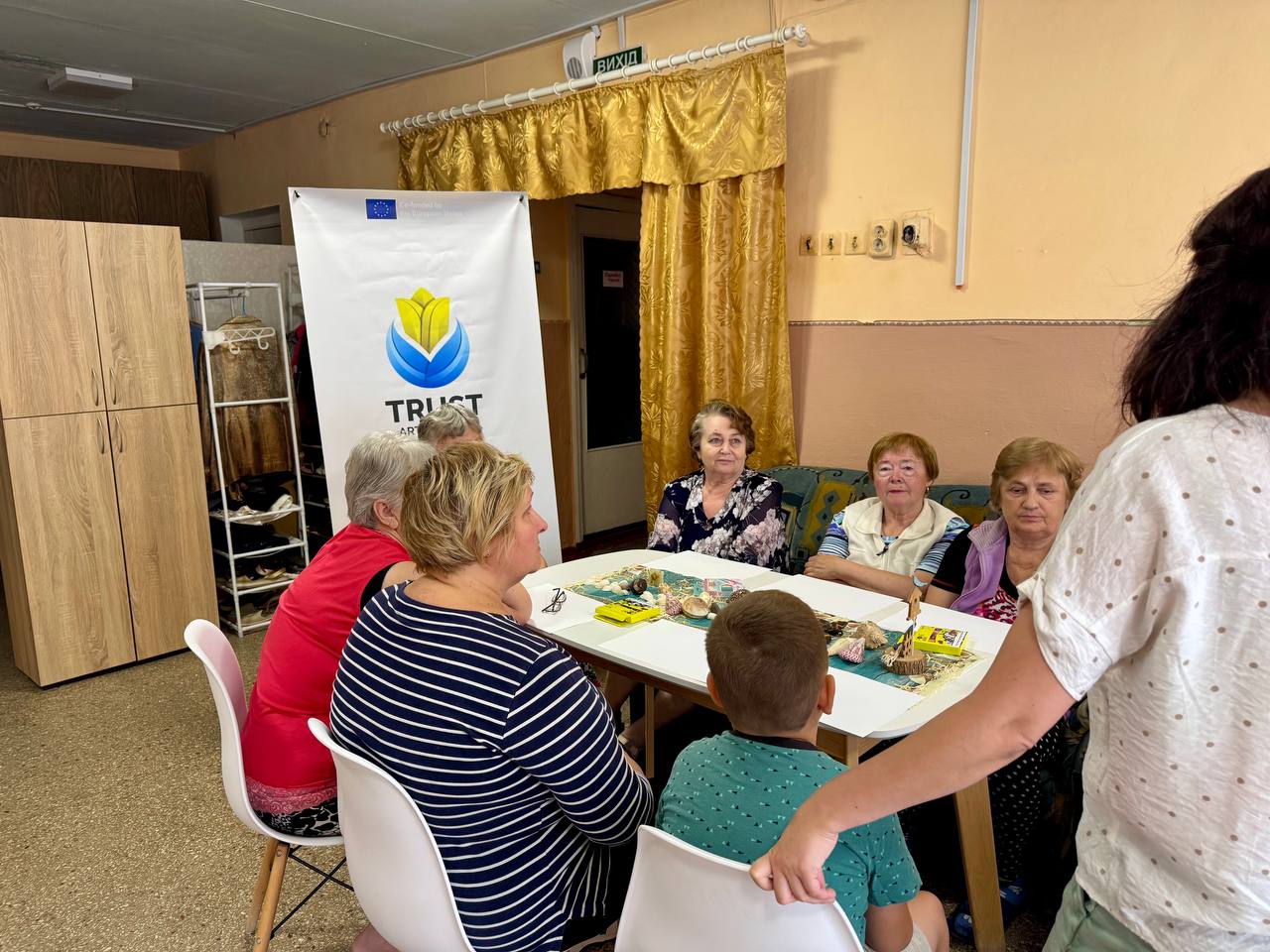
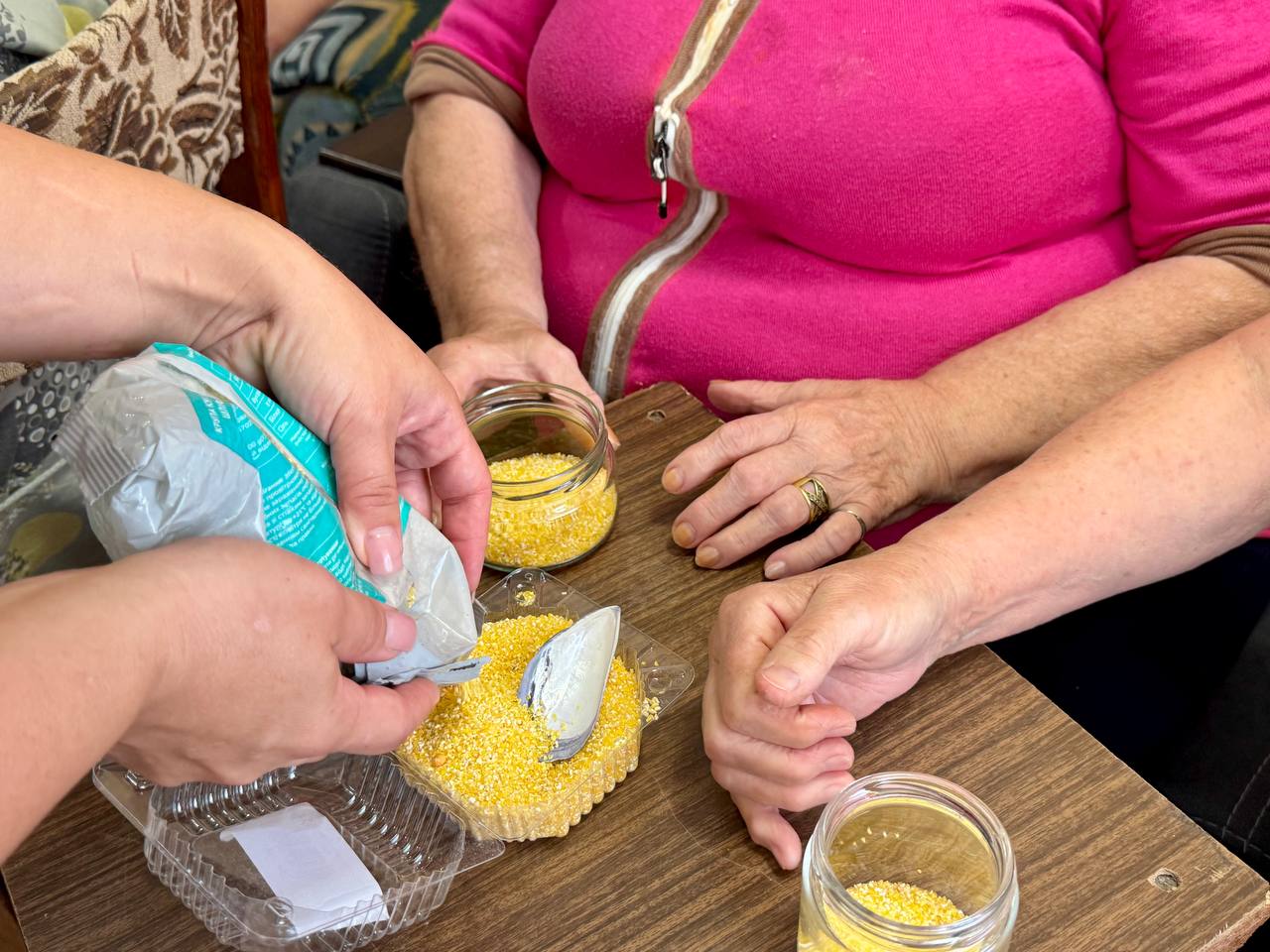
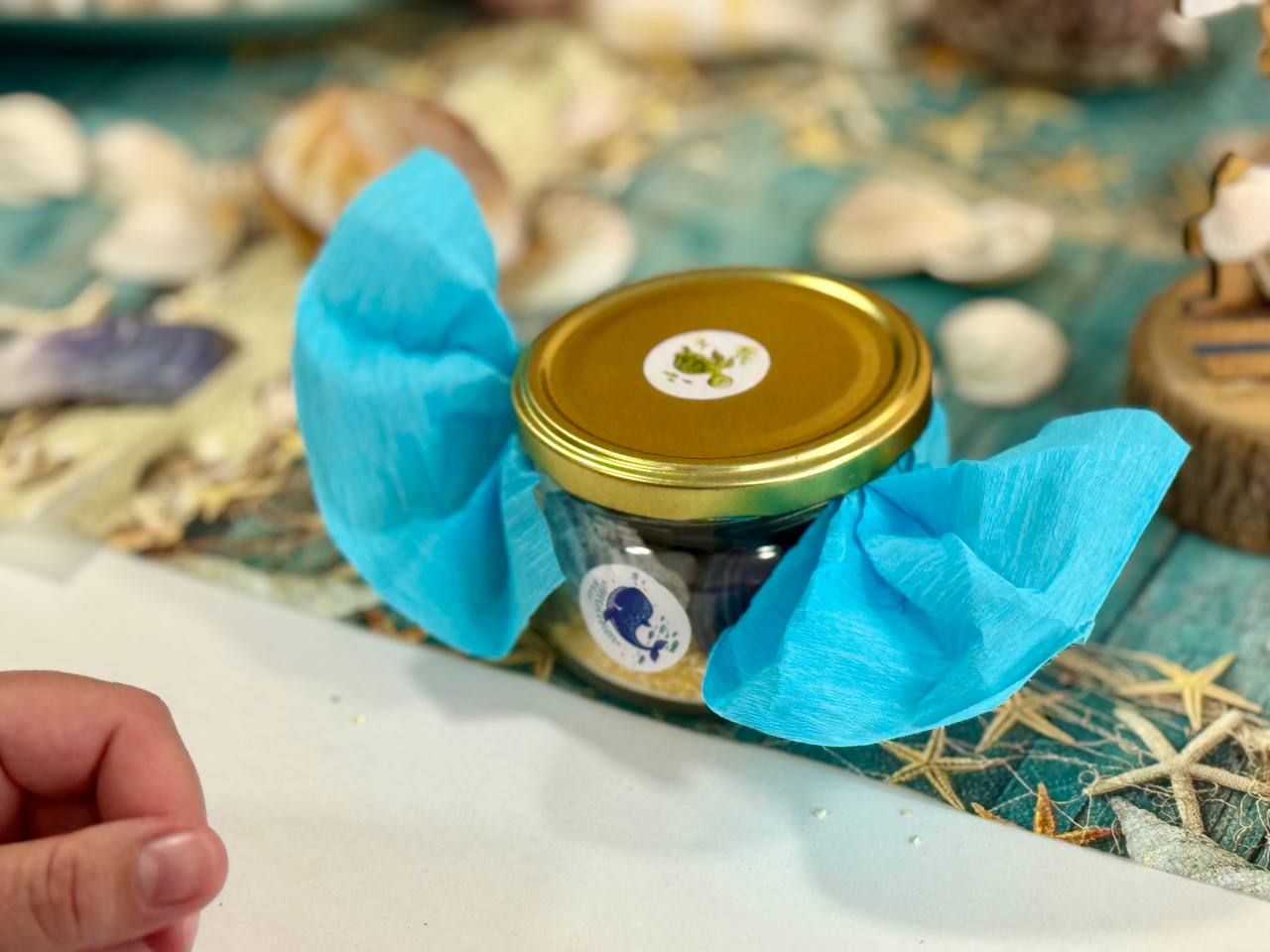
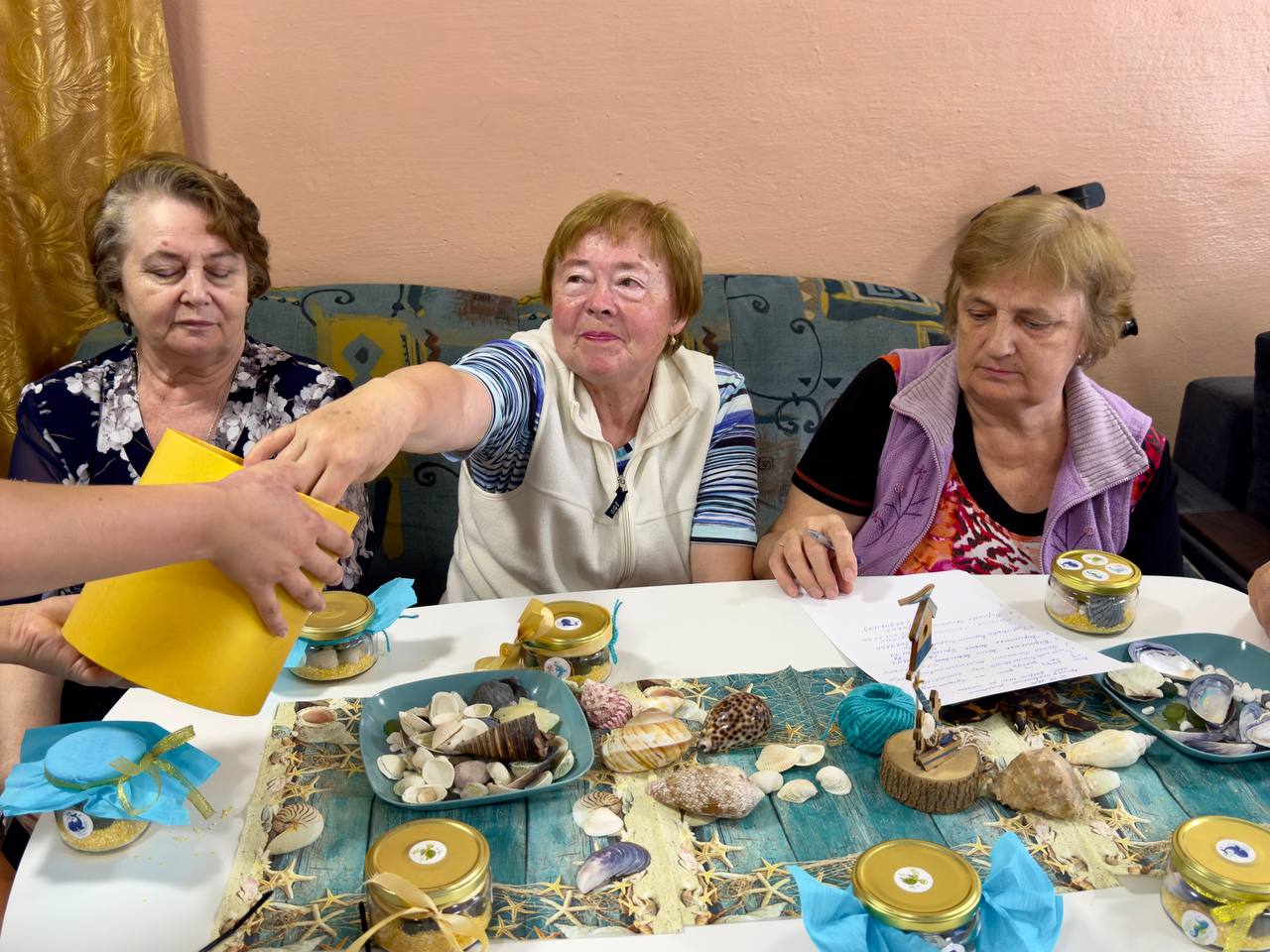
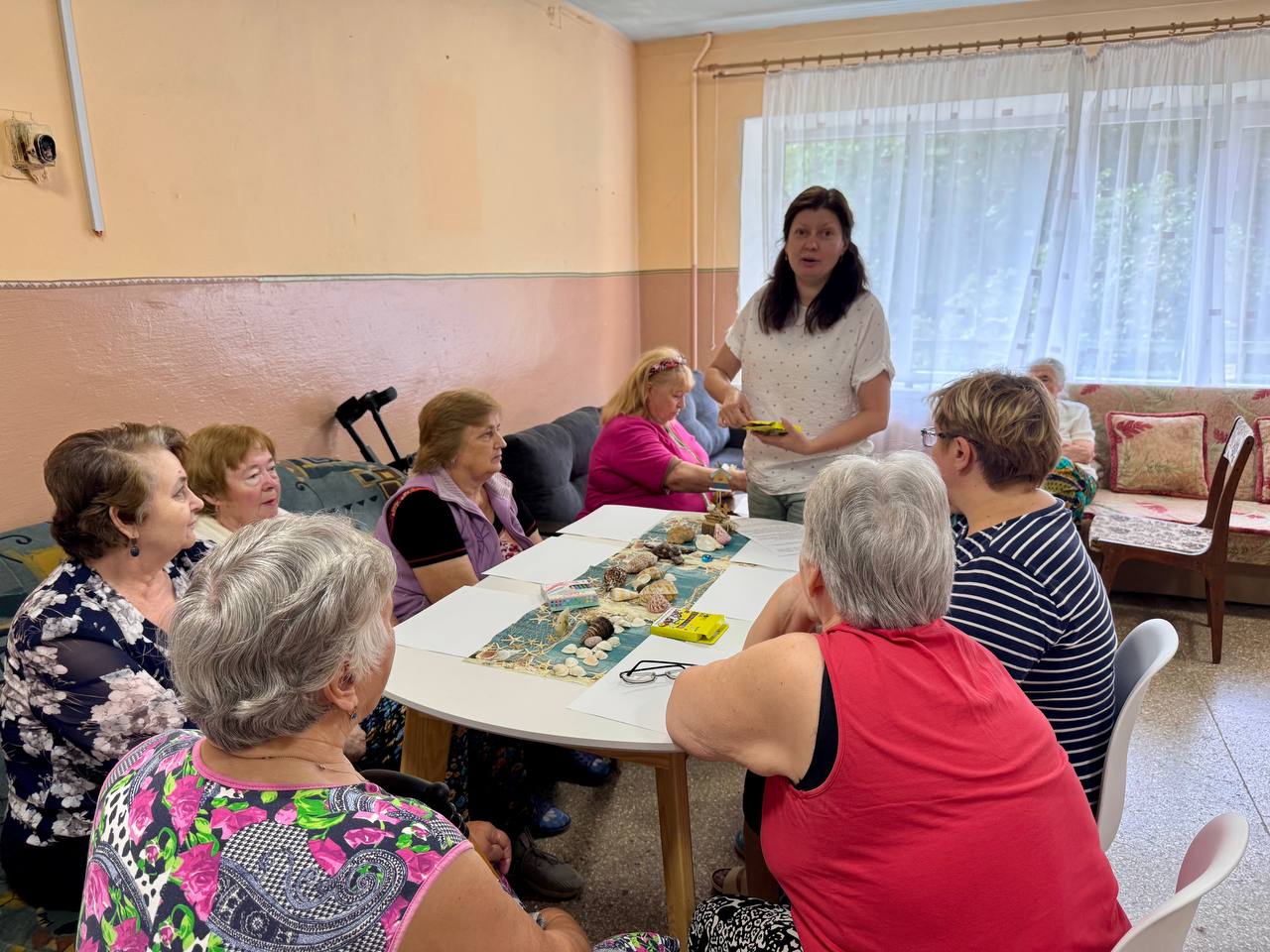
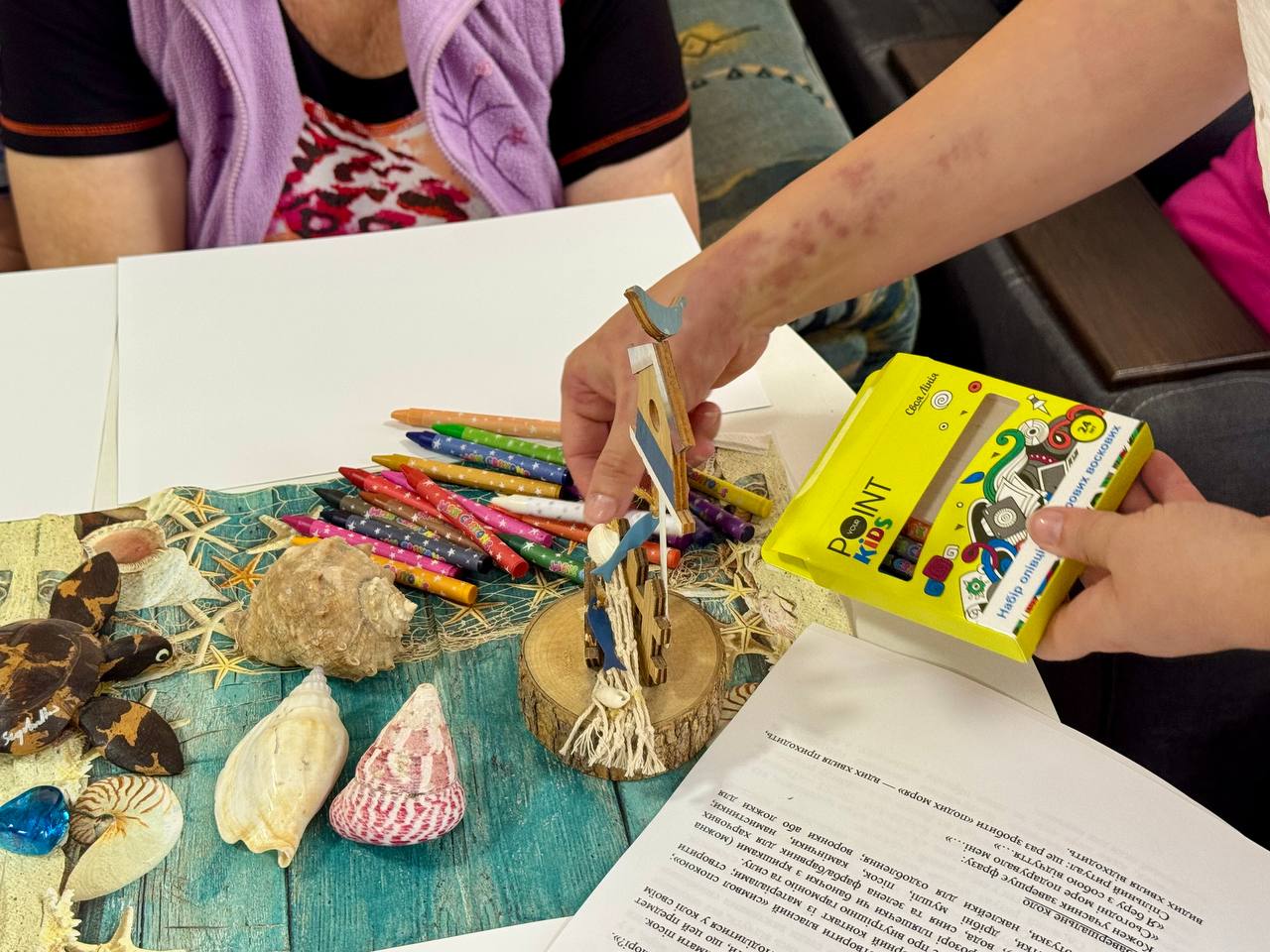
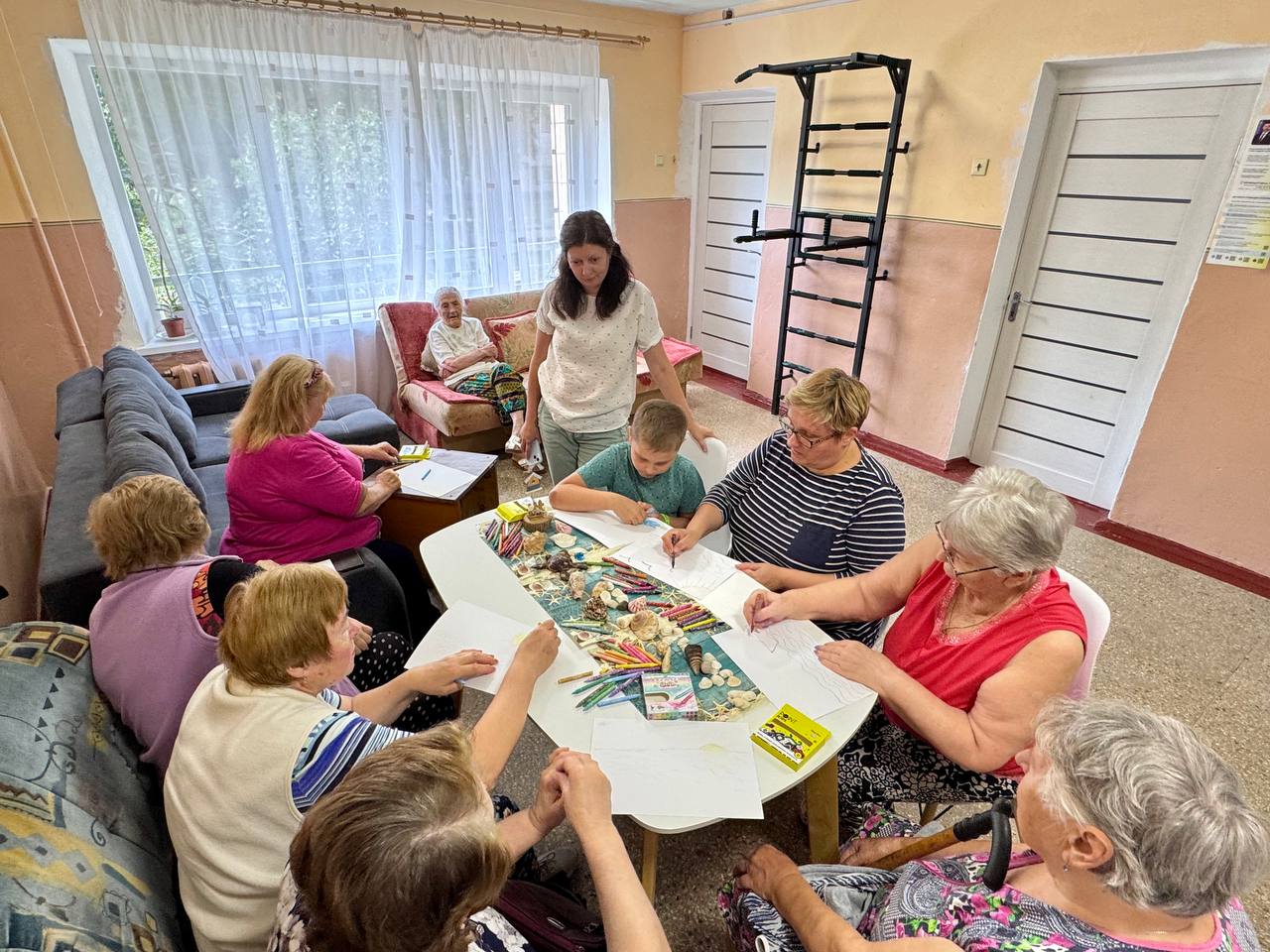
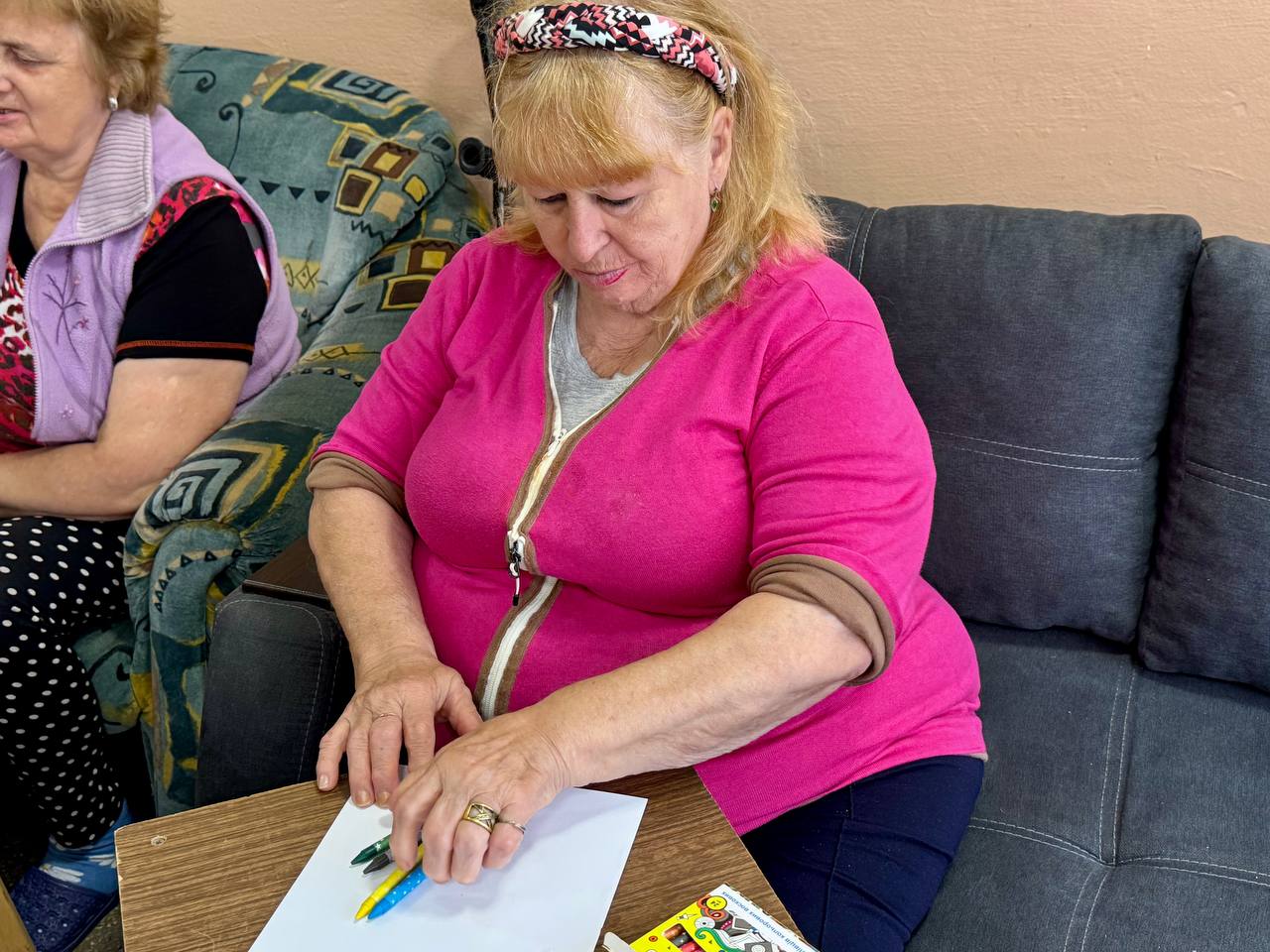
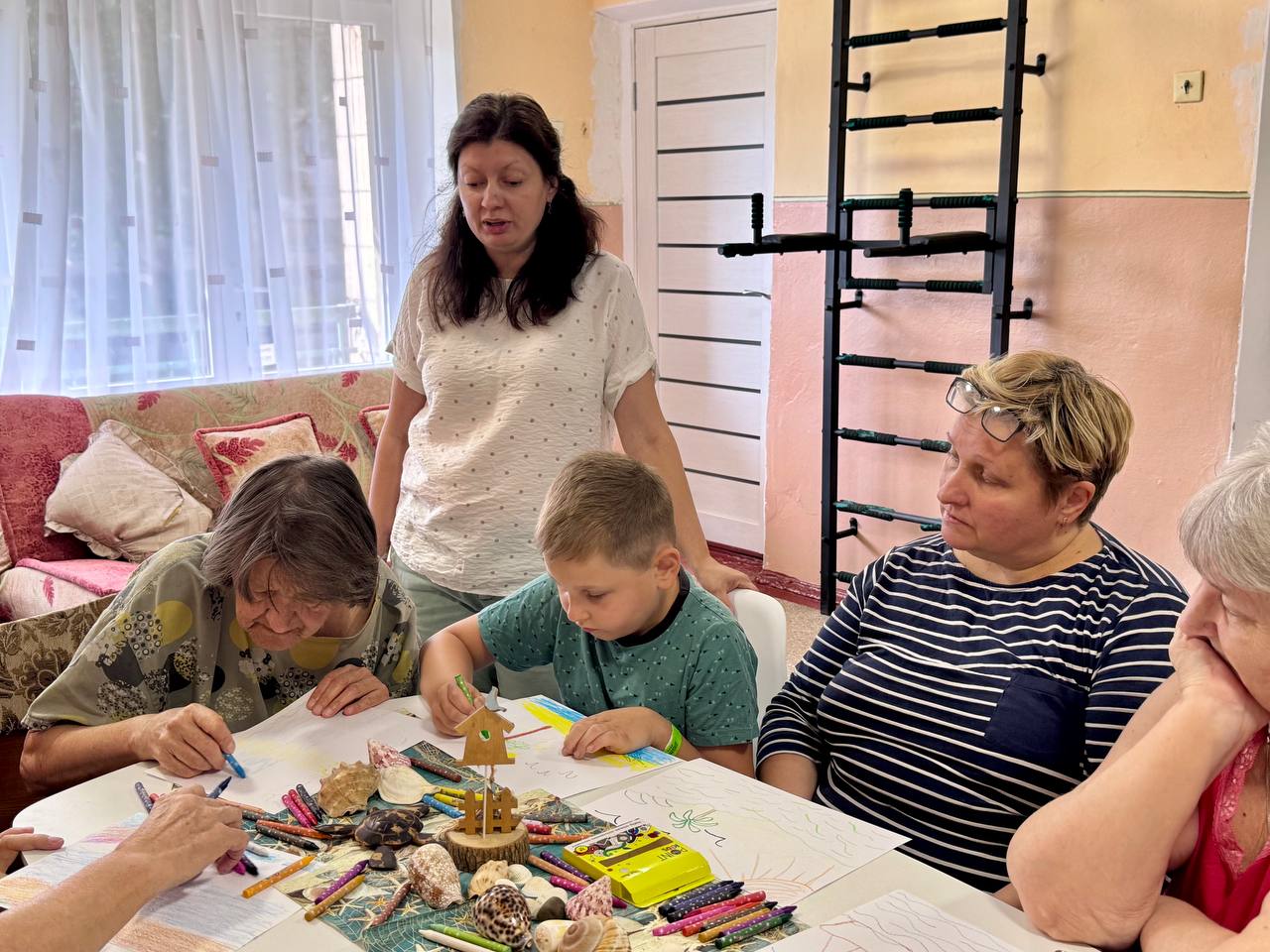
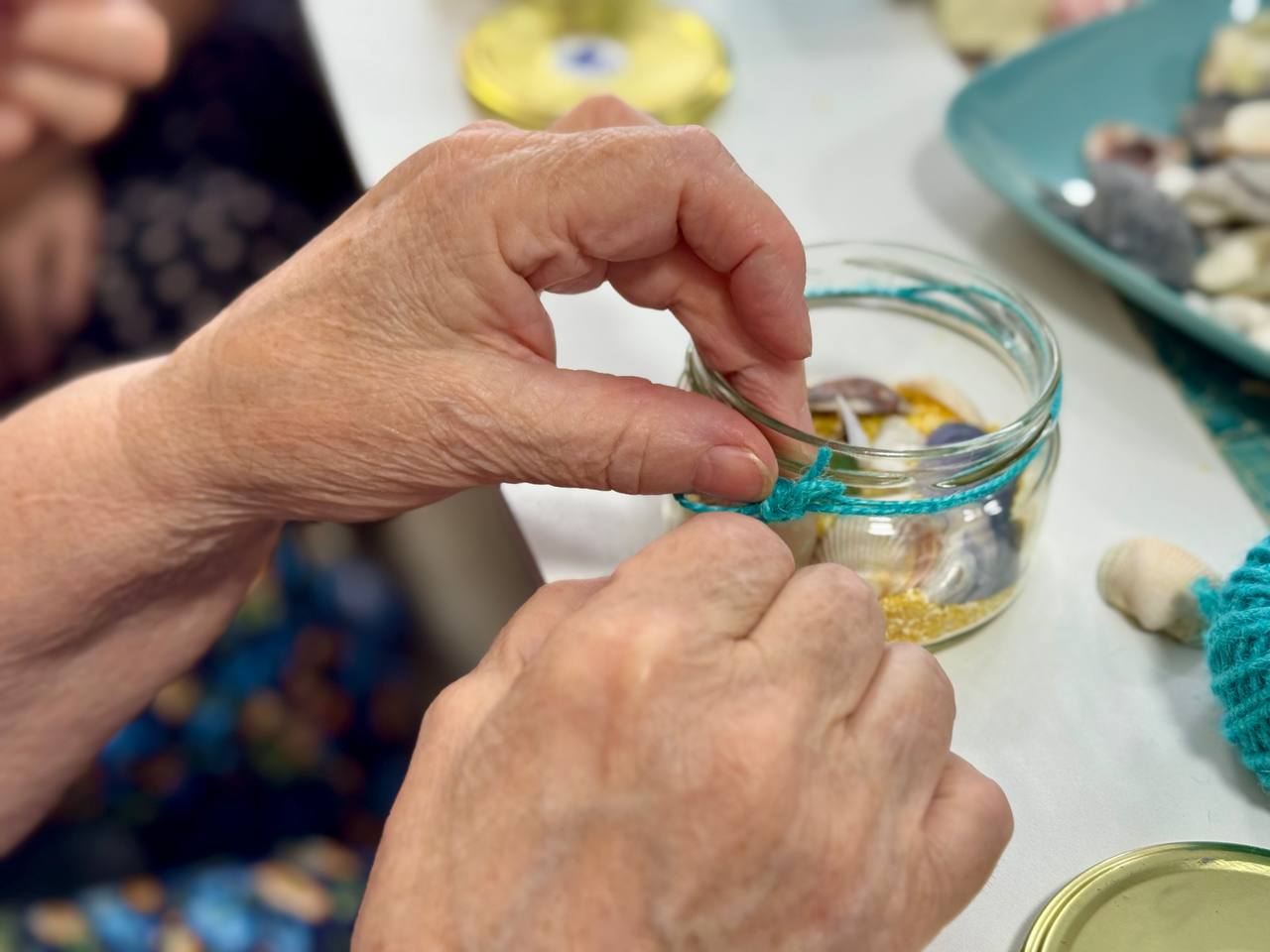
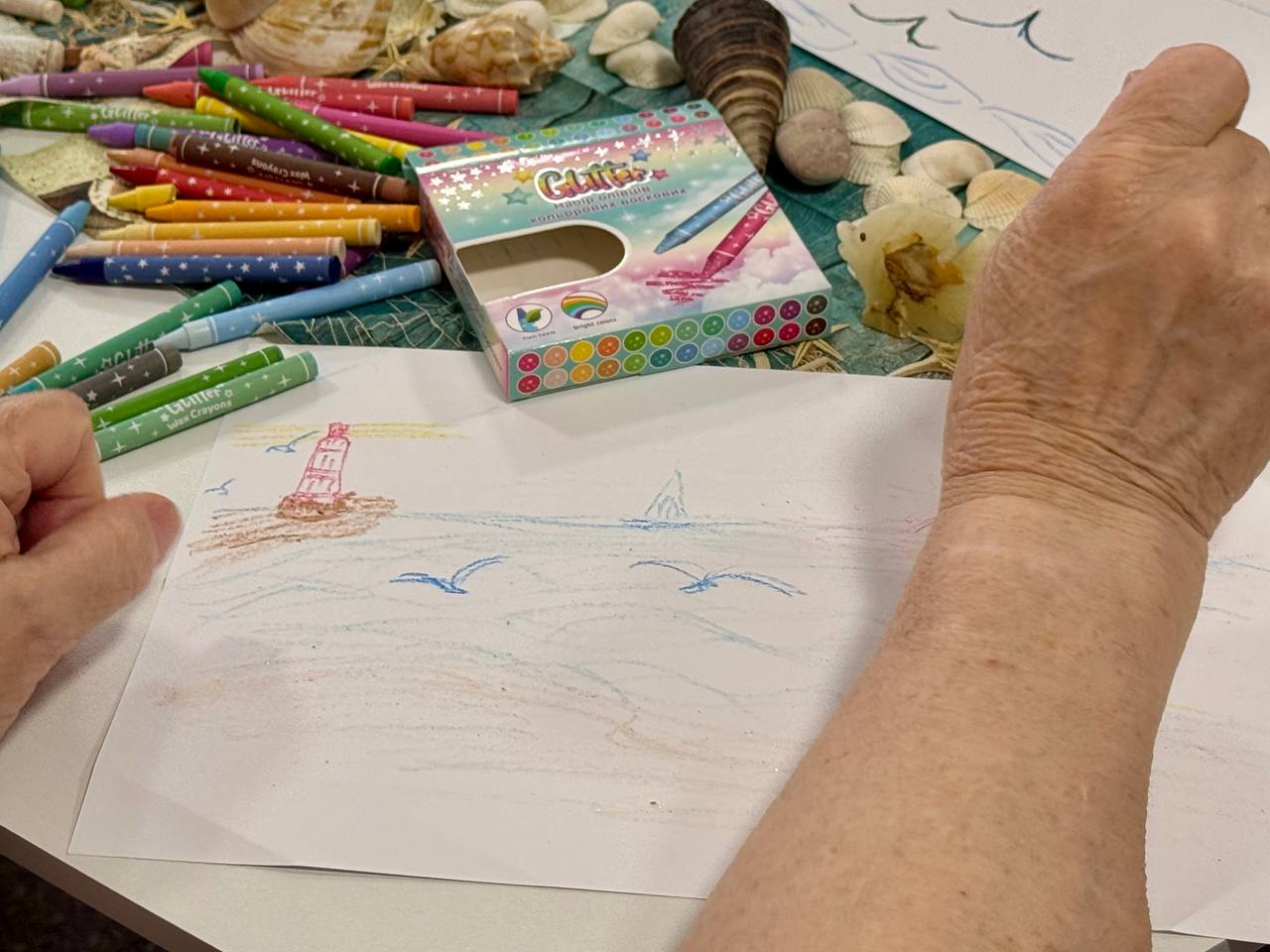
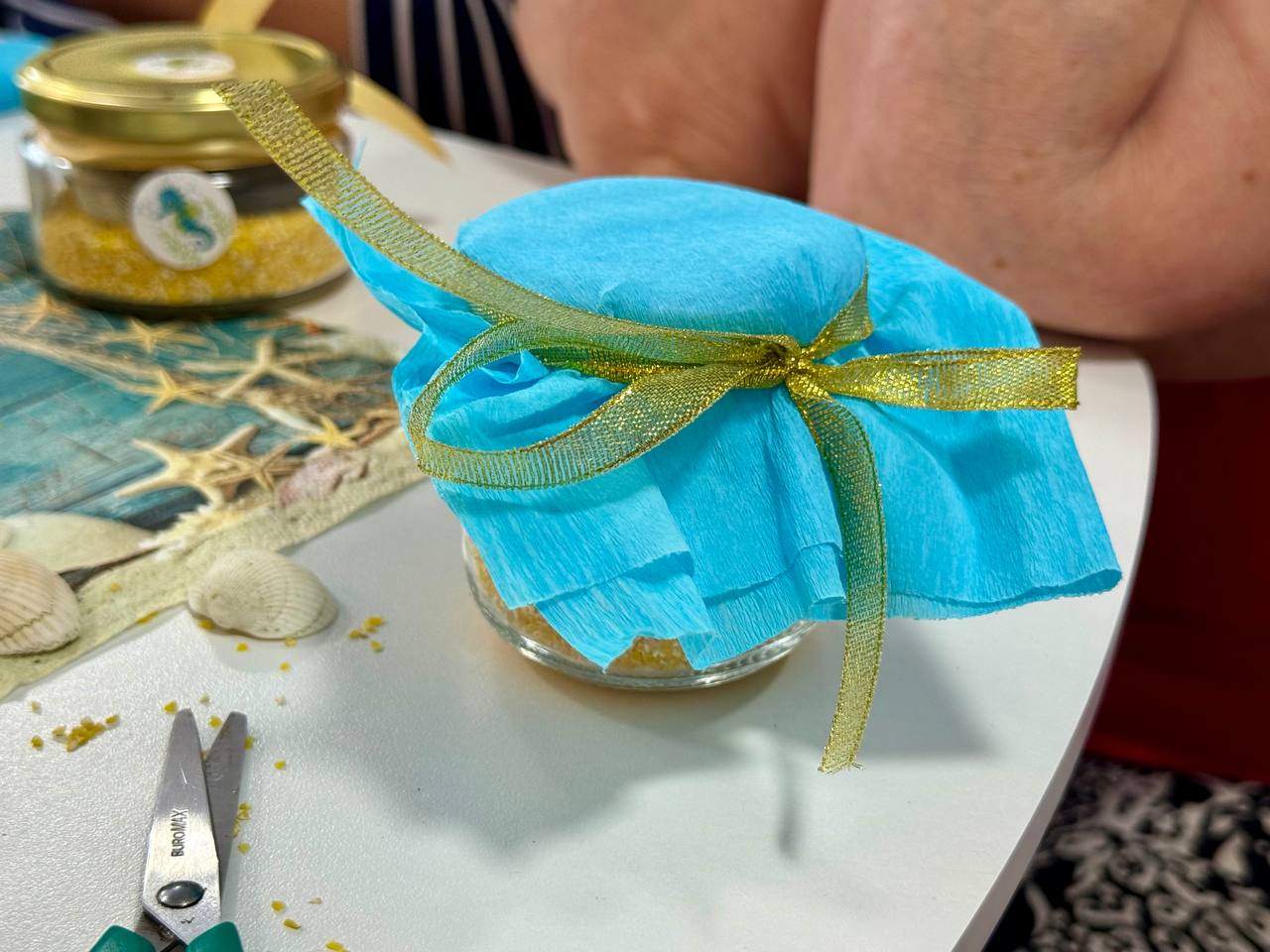
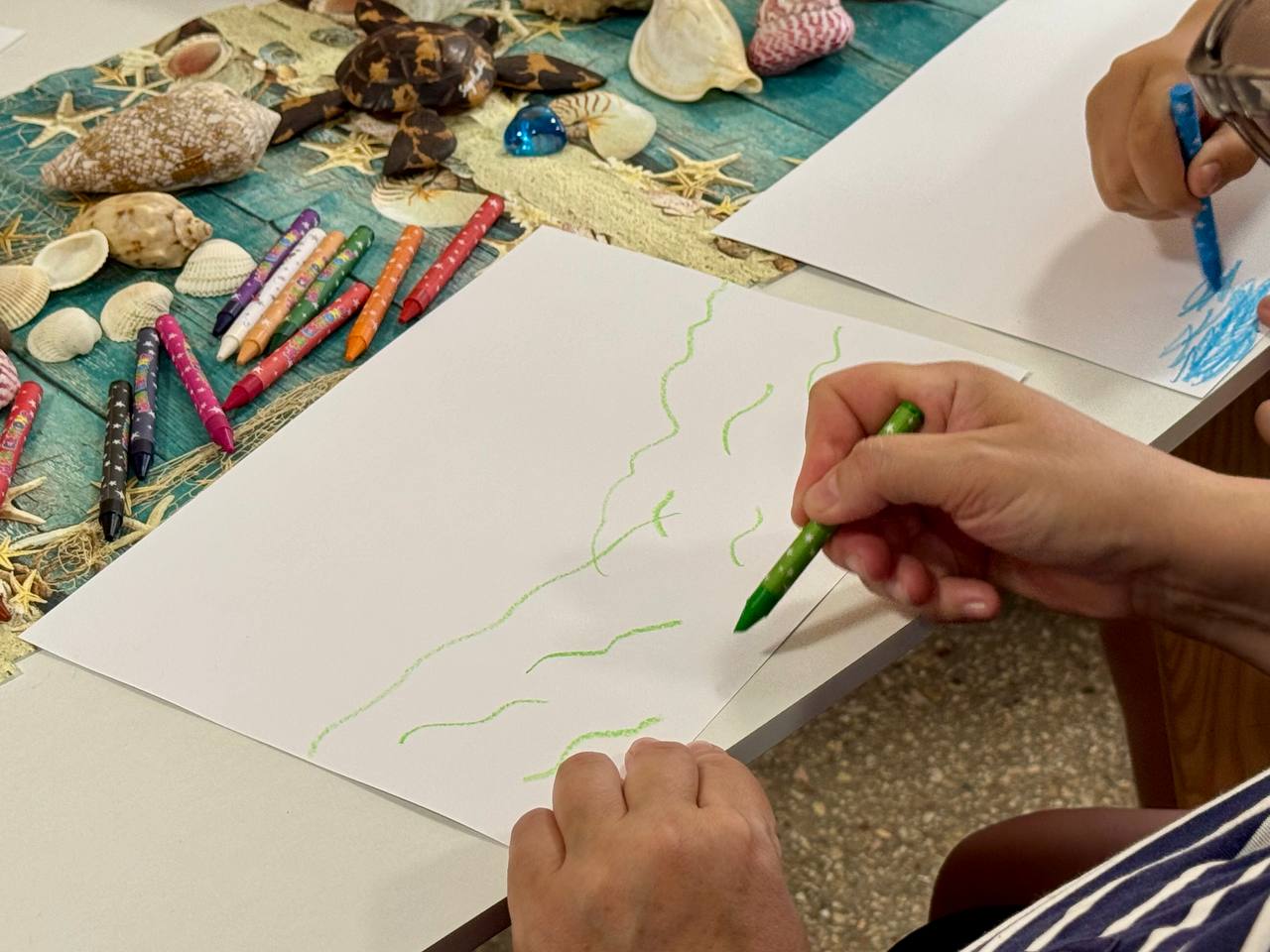
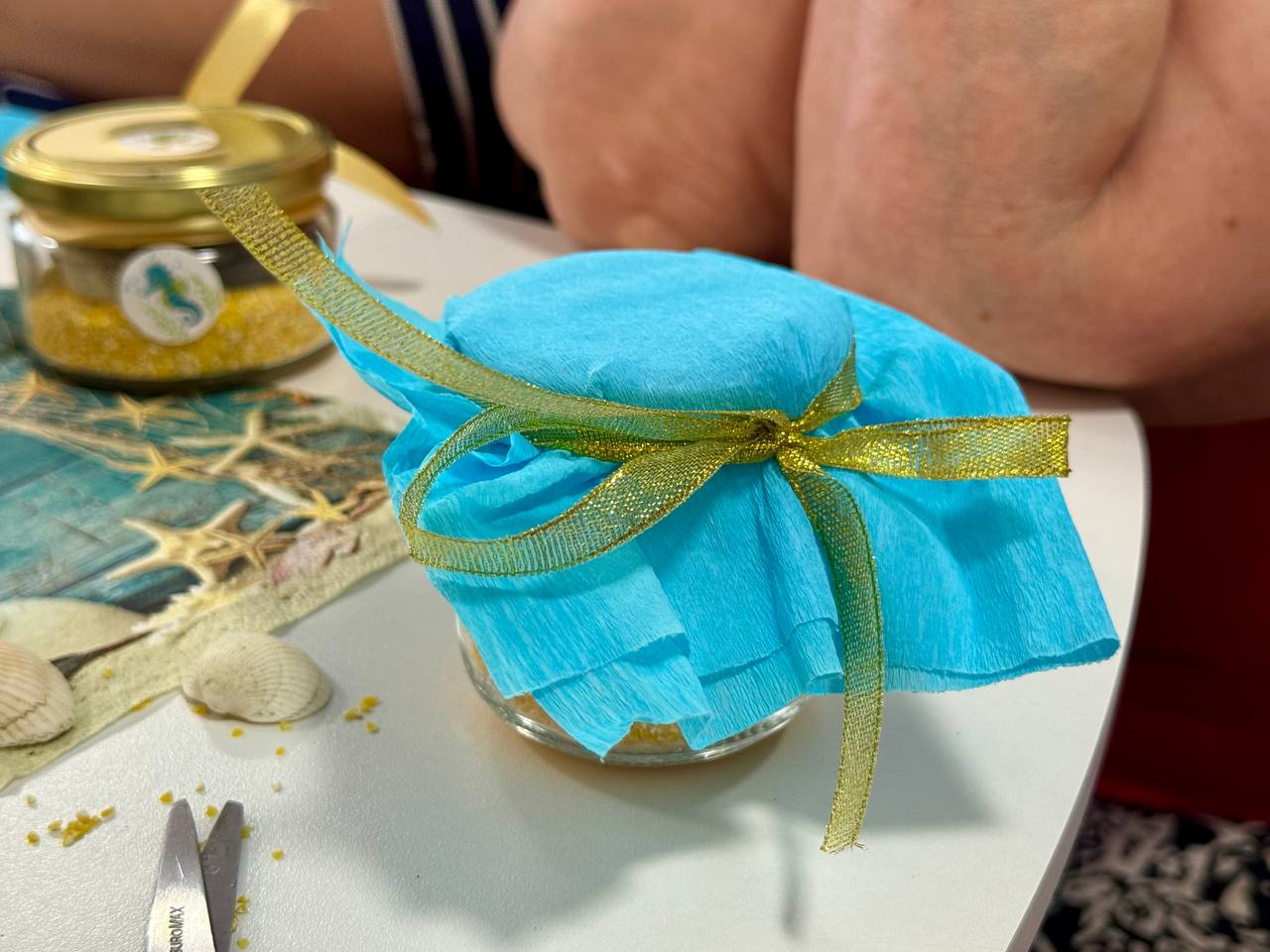
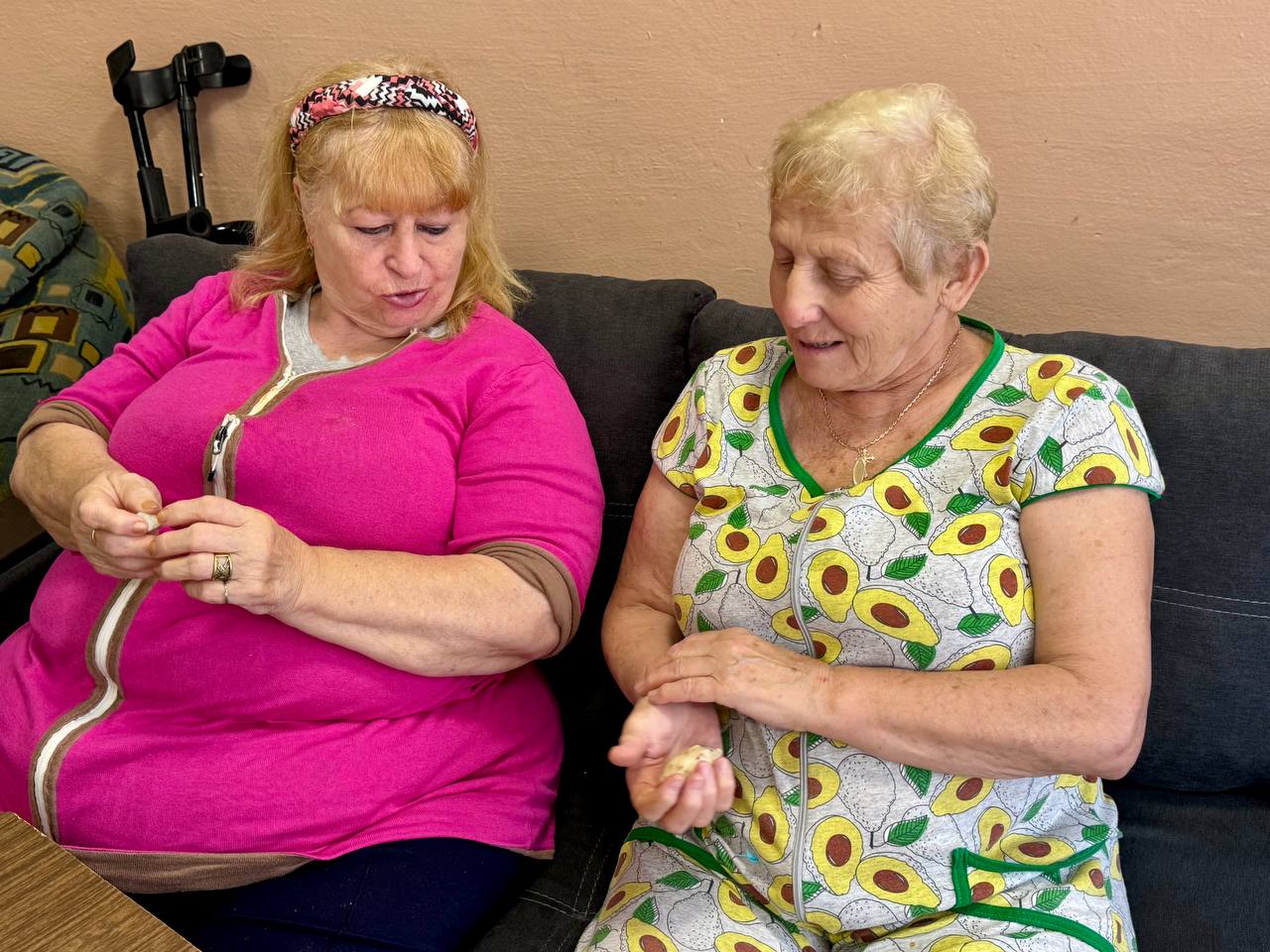
Poltava Polytechnic, thanks to the project's international partners, continues to create this vitally important space for healing. New meetings are ahead, because creativity is a step towards recovery even in the darkest times.
As a reminder, faculty members of Poltava Polytechnic are eligible to participate in academic mobility and internship programs. Students can study abroad through Erasmus+ credit academic mobility grant programs for a semester or a full academic year at leading universities in Austria, Greenland, Denmark, Estonia, Finland, France, Germany, Greece, Ireland, Italy, Latvia, Lithuania, Luxembourg, the Netherlands, Norway, Poland, Portugal, Romania, Slovakia, Spain, Sweden, and the Czech Republic.
For more detailed information on current internship, teaching, and academic mobility programs abroad, please get in touch with the International Relations Office (office 213-C, interoffice@nupp.edu.ua) or the coordinator of international activities at the National University “Yuri Kondratyuk Poltava Polytechnic” – Anna Pavelieva, Ph.D. in Philology, Associate Professor of the Department of Germanic Philology and Translation (email: kunsite.zi@gmail.com, phone: +38-(095)-91-08-192).
Media Centre of
National University “Yuri Kondratyuk Poltava Polytechnic”



